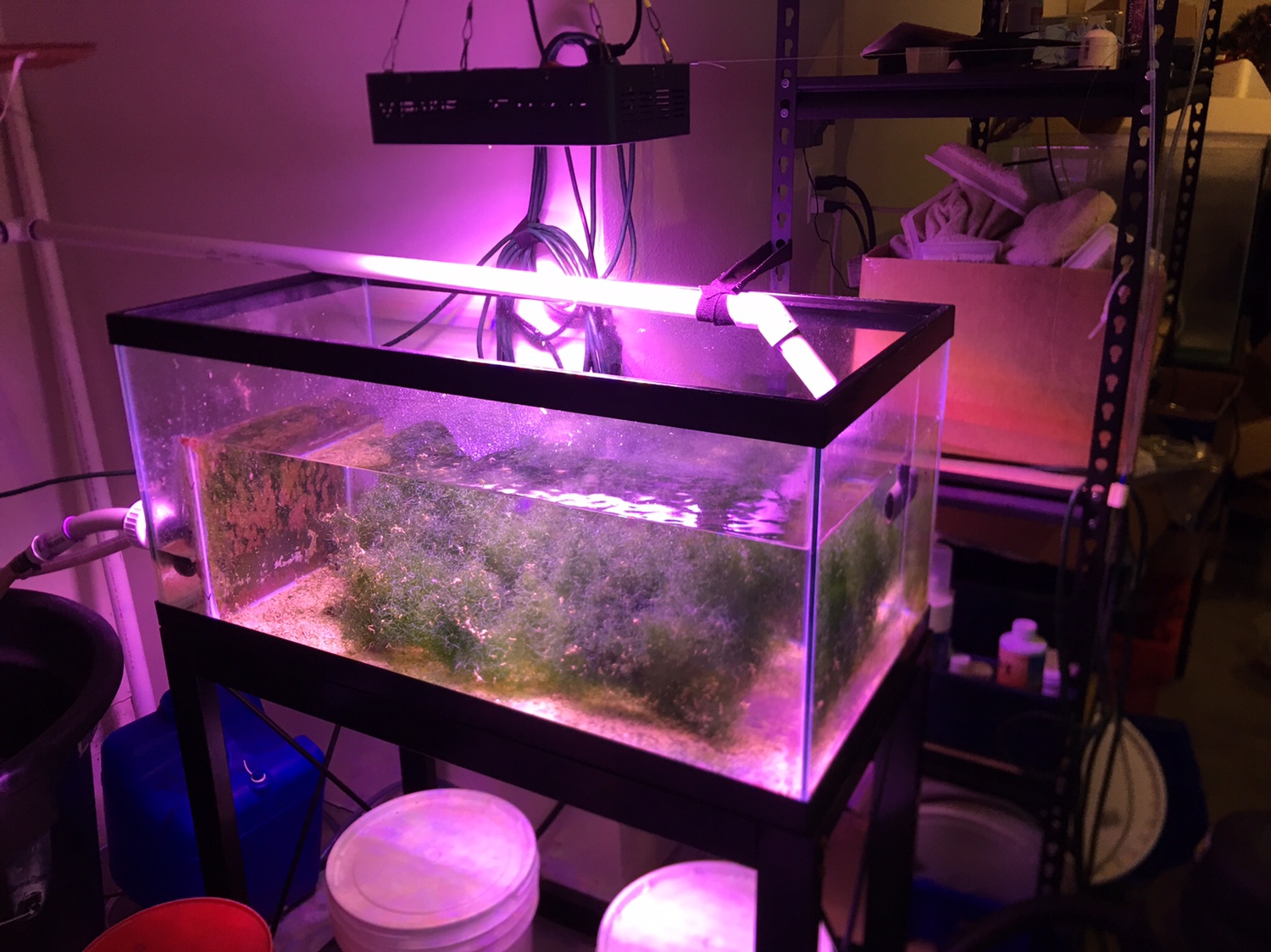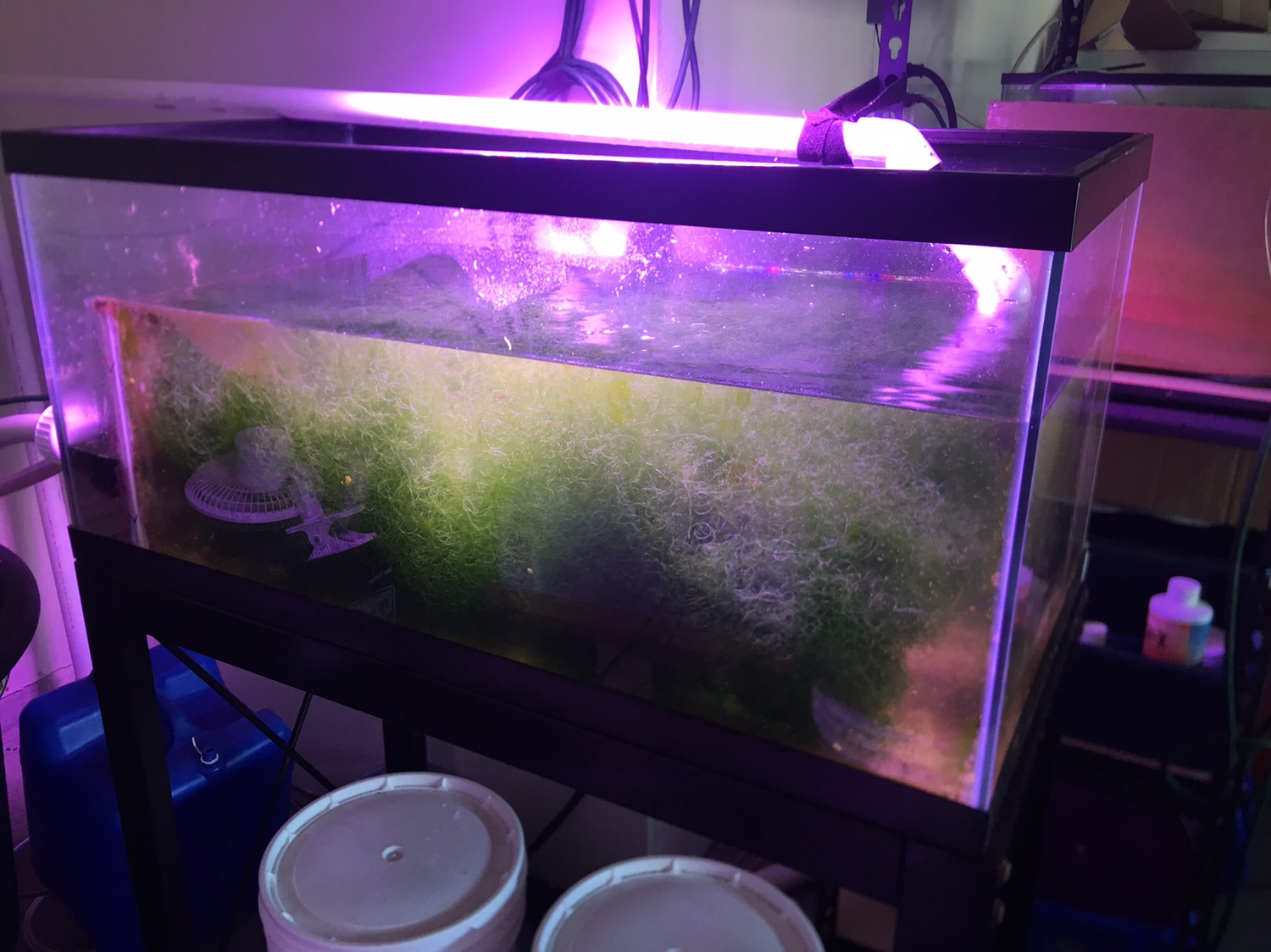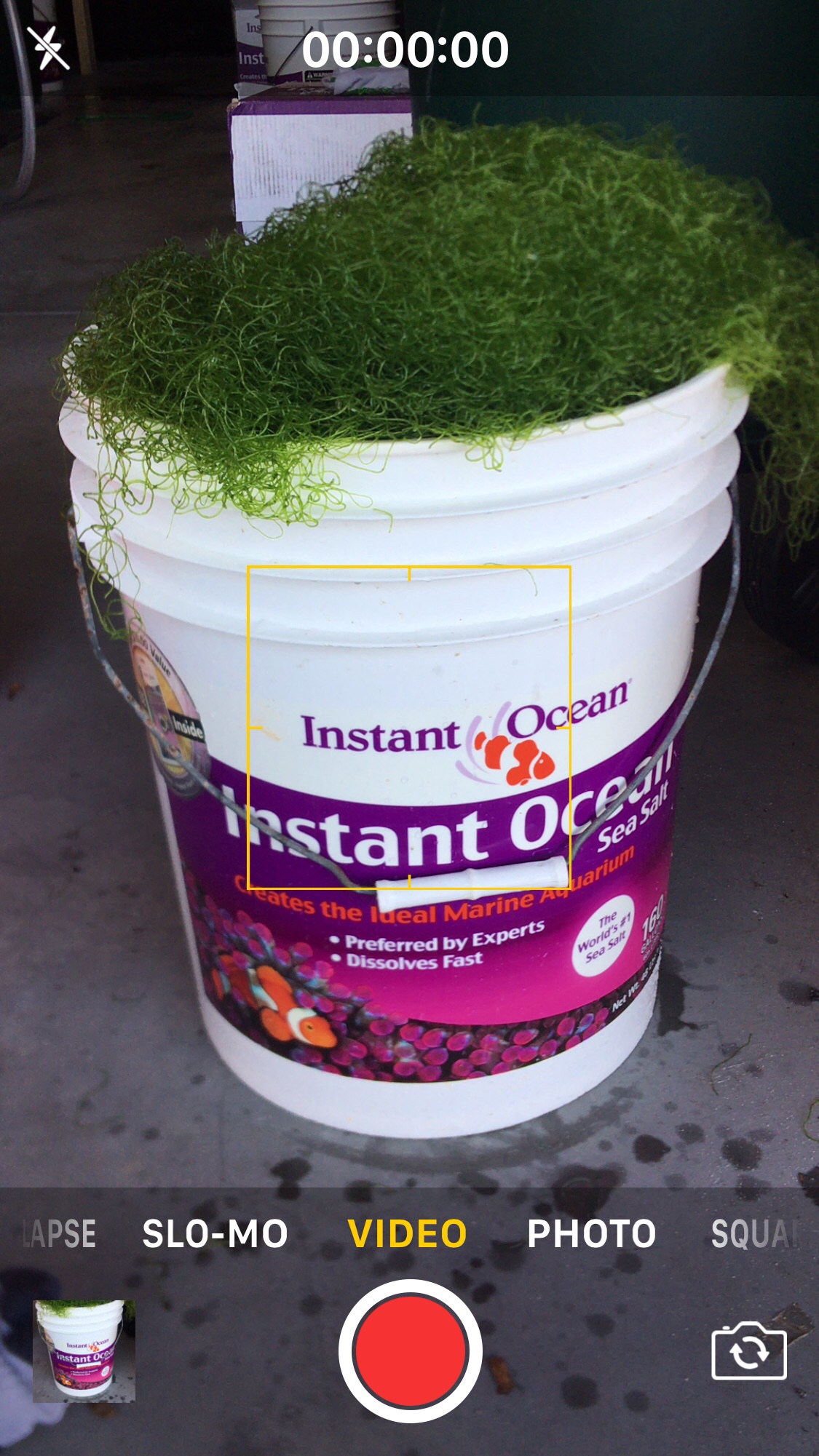Vinegar dosing going slow took me around 4 months to go from 40ppm nitrate to 2 ppm. Then I weaned off and haven't dosed in over 6 months. The nitrates were left over from my original cycle dosing ammonia more than once.
Navigation
Install the app
How to install the app on iOS
Follow along with the video below to see how to install our site as a web app on your home screen.
Note: This feature may not be available in some browsers.
More options
You are using an out of date browser. It may not display this or other websites correctly.
You should upgrade or use an alternative browser.
You should upgrade or use an alternative browser.
Good ways to reduce NO3
- Thread starter ReeferAdrian
- Start date
- Tagged users None
- Joined
- Jan 11, 2016
- Messages
- 1,670
- Reaction score
- 1,222
NOPOX and biopellets both worked for me on reducing nitrate. But biopellets are hard to dial in and adjust so I ended up with no nitrate whatsoever and my corals suffered. Now I am just manually dosing NOPOX and my system seems quite stable.
- Joined
- Sep 4, 2017
- Messages
- 35
- Reaction score
- 4
Its pleasant to hear that there is no need for skimmer when carbon/vinegar dosing is administered. I have also heard of raw sugar being used to reduce No3, how true is this? Between vinegar and sugar, which would be the "safer' option? Am looking at trying one, just want to be sure it does not harm the "citizens" in my tank.
- Joined
- Jan 11, 2016
- Messages
- 1,670
- Reaction score
- 1,222
Oh Skimmer is a must for carbon dosing. And you need a pretty good one. Carbon dosing is essentially bonding nitrate, carbon and dead bacteria all together so the mix can be skimed out.
https://www.reef2reef.com/threads/good-ways-to-reduce-no3.328826/#post-4082364Oh Skimmer is a must for carbon dosing. And you need a pretty good one. Carbon dosing is essentially bonding nitrate, carbon and dead bacteria all together so the mix can be skimed out.
- Joined
- Jan 11, 2016
- Messages
- 1,670
- Reaction score
- 1,222
The skimmate usually gets darker and the volume increases after carbon dosing. So I think something extra is getting skimmed out.
For sure. But that doesn't make a skimmer a "must"The skimmate usually gets darker and the volume increases after carbon dosing. So I think something extra is getting skimmed out.
- Joined
- Jan 11, 2016
- Messages
- 1,670
- Reaction score
- 1,222
If you are only adding stuff into the tank and not taking anything out how would nutrient level drop then? Based on the law of conservation of mass it is hard to understand.For sure. But that doesn't make a skimmer a "must"
1. Many organisms can use the dosed carbon directly, and may grow faster because of it. Most of these organisms are benthic and not skimmable. Corals, sponges, even some types of algae.If you are only adding stuff into the tank and not taking anything out how would nutrient level drop then? Based on the law of conservation of mass it is hard to understand.
2. There's a whole food chain above bacteria that can consume the bacteria and thereby take up some of the N and P from the bacteria. Many of these are too small to skim.
RHF
- Joined
- Apr 22, 2016
- Messages
- 3,018
- Reaction score
- 2,207
I add NO3 weekly to maintain ~2-5ppm.
I recently retooled my chaeto refugium.
First, I bought an LED grow light from Amazon that is built solely to cultivate plants, has the right spectrum and puts out ~2700 PAR 12" from the light. The fixture's form factors and spread perfectly match the outline of my fuge and is on for 18 hours.
The second thing I did and IMO most effective was replace the 3/4" plumbing for 1". This almost doubles the flow through the chaeto.
After all this I noticed huge changes. Night time pH rose, and PO4 began to drop in just a few days ruining m. Same everything just changed those items on the fuge.
My PO4 has dropped from .08 to 0.01ppm via Hanna ULR in just a few weeks. Used no GFO and just two water changes in this time.
How my fuge looks just after harvest.

Before harvest

This is what is harvested every two weeks since making the upgrade.

I recently retooled my chaeto refugium.
First, I bought an LED grow light from Amazon that is built solely to cultivate plants, has the right spectrum and puts out ~2700 PAR 12" from the light. The fixture's form factors and spread perfectly match the outline of my fuge and is on for 18 hours.
The second thing I did and IMO most effective was replace the 3/4" plumbing for 1". This almost doubles the flow through the chaeto.
After all this I noticed huge changes. Night time pH rose, and PO4 began to drop in just a few days ruining m. Same everything just changed those items on the fuge.
My PO4 has dropped from .08 to 0.01ppm via Hanna ULR in just a few weeks. Used no GFO and just two water changes in this time.
How my fuge looks just after harvest.

Before harvest

This is what is harvested every two weeks since making the upgrade.

Randy Holmes-Farley
Reef Chemist
View Badges
Staff member
Super Moderator
Excellence Award
Expert Contributor
Article Contributor
R2R Research
My Tank Thread
- Joined
- Sep 5, 2014
- Messages
- 67,535
- Reaction score
- 63,982
Its pleasant to hear that there is no need for skimmer when carbon/vinegar dosing is administered. I have also heard of raw sugar being used to reduce No3, how true is this? Between vinegar and sugar, which would be the "safer' option? Am looking at trying one, just want to be sure it does not harm the "citizens" in my tank.
Some folks use sugar, but the negative reports with it seem more common than with other organics such as ethanol and acetate. I experimented twice and saw negative effects (browning of corals), but it may not have been done optimally.
- Joined
- Jan 11, 2016
- Messages
- 1,670
- Reaction score
- 1,222
1. Many organisms can use the dosed carbon directly, and may grow faster because of it. Most of these organisms are benthic and not skimmable. Corals, sponges, even some types of algae.
2. There's a whole food chain above bacteria that can consume the bacteria and thereby take up some of the N and P from the bacteria. Many of these are too small to skim.
RHF
So these elements are taken by living organism and still in the system but in different forms? Sounds like a lot of to be observed but maybe that's why carbon dosing promotes coral growth if used properly.
For sure. But that doesn't make a skimmer a "must"
Just to clarify, a skimmer is usually recommended as a buffer against excessive carbon over doses. If a user who has high nutrient levels doses too much carbon at once, the resulting bacteria bloom can wipe the tank due to lack of oxygen. Well, that and as the export mechanism for plain old carbon dosing.
If you are only adding stuff into the tank and not taking anything out how would nutrient level drop then? Based on the law of conservation of mass it is hard to understand.
That depends on the type of carbon dosing as Randy was eluding to. Uncontrolled, non targeted carbon dosing (E.g. bacteria grows wherever it deems fit), can reduce nutrients by feeding higher level organisms (bacteria -> zooplankton -> corals/fish -> vacations), or by being skimmed out. Carbon dosing using more targeted methods like I was referring to, use a reactor vessel of some sort to contain the carbon and bacteria to a given area and in a very controlled manner. In these cases denitrification is usually (an intended) part of the process (nitrate -> nitrite -> nitrogen gas) thus removing nitrate without skimming it. The expectation is that bacteria is also being flushed from the reactors and either being consumed by higher level members of the food chain or being skimmed if a skimmer is use. This type of carbon dosing, usually has less of an impact on phosphate due to the nitrate that is being reduced by denitrification.
Dennis
Randy Holmes-Farley
Reef Chemist
View Badges
Staff member
Super Moderator
Excellence Award
Expert Contributor
Article Contributor
R2R Research
My Tank Thread
- Joined
- Sep 5, 2014
- Messages
- 67,535
- Reaction score
- 63,982
So these elements are taken by living organism and still in the system but in different forms? Sounds like a lot of to be observed but maybe that's why carbon dosing promotes coral growth if used properly.
Depends on which elements you mean.
The organic carbon itself may end up mostly as CO2, and so be blown off to the air.
Some of the nitrogen from nitrate may be incorporated into organism tissues (proteins, etc.), and some blown off to the air as N2 due to denitrification.
Most of the phosphate taken up will be incorporated into organism tissues, such as DNA, phospholipids, etc.
Similar threads
- Replies
- 6
- Views
- 257
- Replies
- 8
- Views
- 497
- Replies
- 19
- Views
- 317
- Replies
- 7
- Views
- 420
- Price: 19.99
- Shipping Available
- Replies
- 5
- Views
- 441
















